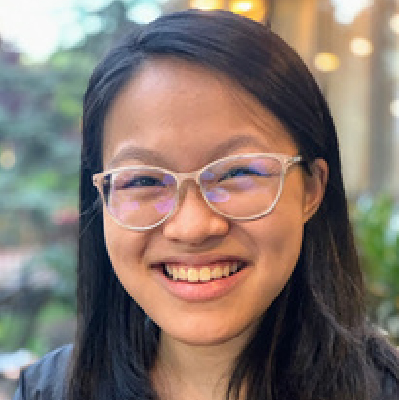Lois Wu

BA Anthropology
Urban Studies minor
Environmental Studies minor
Princeton University
NYCSRMC: SRMP, AMNH
How I see myself: Hi, I’m Lois, and I’m a junior studying Anthropology! I’m passionate about using anthropology to understand the intersections of urban and environmental studies, though I don’t have a good answer yet to the age-old question of: “So, what do you want to do after you graduate?” The current answer I’m giving is something in urban planning or urban policy, though I feel like that answer changes every year. At school, I’m involved with the Student Advisory Board for the campus Art Museum, the step dancing team, and Outdoor Action, the outdoorsy, goes-on-backpacking-and-hiking-trips club. I am also the proud owner of five houseplants and love visiting museums in my free time!
My Passions: I’m passionate about the intersections of urban studies, environmental studies, and anthropology because I think they provide a powerful way to approach issues of climate change we’re already facing today and will continue to experience. More than half of the global population now lives in urban areas and I believe it will be increasingly important to understand how to respond to and proactively mitigate the effects of climate change in and around cities, while also keeping in mind the interconnectivities between rural and urban areas. Anthropology’s people-based approach and emphasis on understanding communities adds to this, giving faces and stories to the impacts.
What makes you excited about working with other NYCSRMC alumni on this research study? I’m excited to work with other NYCSRMC alumni on this research study because I want to learn more about how this shared experience we all had, of mentored science research before college, has impacted everyone else’s lives. I was a part of the American Museum of Natural History’s Science Research Mentoring Program (SRMP) and everyone I met during SRMP had amazing life goals and were inspiring people to be around. I’m excited to work with alumni who did other programs and get to know them better.
How would you describe growing up in NYC? I grew up in Queens, raised by two parents who had immigrated from Hong Kong. I love New York and I think it’s shaped a lot of who I am. For one, I walk fast, talk fast, wear all black, and don’t smile at strangers. All things my friends in college make fun of me for. It’s taught me how to love museums and navigate commuting to school from a young age. It’s also made me interested in better understand education. Through Prep for Prep, a leadership program geared towards placing students of color in private schools, I attended private school for two years in middle school. Entering a predominantly white institution where many of my peers came from much wealthier backgrounds as a twelve year old was a complete culture shock. I ultimately decided to reenter public school for high school because I felt uncomfortable at my private school. When I entered college, I took a class on educational inequities and it helped me better understand some of my personal experiences. This opened the door for my broader interest in research about education and different educational opportunities and I’m excited to explore this interest further in this research study.
Important Learning Experiences I’ve Had: During my fall semester of 2020, my sophomore fall, I was enrolled in an introduction to ecology and evolutionary biology course. Ecology and evolutionary biology, also known as EEB, was one of the majors I was considering. The class both reaffirmed my interest in science, but also showed me how difficult it was to learn how to do labs and hands-on science in a virtual environment. It ultimately deterred me from majoring in EEB. Virtual learning simply felt inequitable. The professors tried hard to transition the class to a remote setting, but it felt like they made unfair assumptions of students’ situations. For example, one of our labs was to visit a naturally forested area and document ecological succession. The alternative, given to students like me who did not live near a naturally forested area or could not easily access such an area, was to read a scientific article about ecological succession instead. When the course is normally taught in person, the professors bring the students to the woods near campus as a group and everyone completes the lab together. Virtually, I still learned the same concepts, but didn’t have the chance to build my hands-on skills. I learned that part of why I love science classes is because of the hands-on component, the ability to study something like evolutionary variation and constraint and then see it in practice in the different types of legs various species of spiders have. I still loved the class, but not knowing how much longer classes were to be virtual, I decided to study Anthropology instead.
Why I’m interested in talking with other NYCSRMC alumni about this research study: I’m curious about my peers’ mentorship experiences and the impacts of those experiences on their career pathways. Mentorship has always felt a bit daunting to me—everyone always talks about how important it is to have mentors and people who can write letters of recommendation for you, but no one really explains how you go about turning a supervisor or professor relationship into a mentor relationship or how to maintain strong relationships with mentors. I’ve read literature in the past about how forming relationships with professors is something first-generation or low-income students often struggle with because of the often white, middle-class norms embedded in structures like office hours. Personally, forming a close relationship with my SRMP mentor helped me feel more comfortable interacting with professors and supervisors in a more casual manner. How has partaking in mentored science research affected the way other NYCSRMC alumni approach their mentorship relationships?